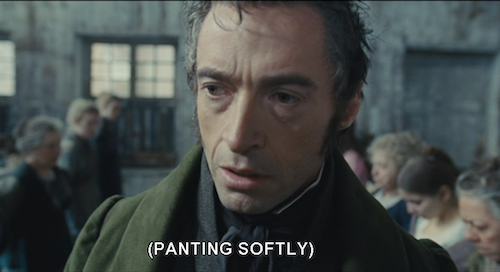If you are unfortunate enough to know me in real life, I have probably already tried to make you read Nick Hanauer’s Politico piece on how rising inequality is not in the best interest of the very rich. If you haven’t, you should read it now. I’ll wait here and look at fourth-quarter economic projections cat videos. Hanauer essentially makes the same argument that Henry Ford made in his defense of so-called “welfare capitalism:” the people who make Ford cars are the same people who buy Ford cars, so it’s good for business to pay workers a higher wage. The case for welfare capitalism is a case for a strong middle class, and it’s particularly relevant in a consumer economy. I’m more interested in Hanauer’s other argument, though: if inequality continues to increase, the inevitable consequence will be either revolution or a police state.
That’s a bold claim, obviously. Hanauer is not a sociologist or an economist; his pedigree as a soothsayer rests entirely on his prescient investment in Amazon in the early 1990s, which made him, as he puts it, “a zillionaire.” One likable element of Hanauer’s authorial voice is that he does not correlate his wealth with exceptional intelligence or determination. As an early investor in someone else’s great idea, he was in the right place at the right time. He takes a similarly jaded view of the notion that he is a job creator.
Hanauer offers the anecdotal version of what economists have already told us: giving money to the rich, via tax cuts or whatever, does not stimulate the economy more effectively than giving money to the poor. He may make a thousand times more than a person just above the poverty line, but that does not mean he bought a thousand cars this year or a thousand pairs of pants. Like Ford, Hanauer contends that it is the consumption of the middle class, not the rich, that drives the American economy.
Certain historical arguments suggest that the middle class stabilizes a political system, too. When I was but a stripling in Iowa, I was taught that one reason European fascism took hold was that Germany and Italy had become sharply divided into rich and poor. Middle class people have food and jobs, so they don’t have much incentive to paralyze society with violent revolution. They also think of themselves as working people, so they’re less likely to get on board with programmatic repression of the lower class. Generally speaking, radical political ideas appeal to A) people with very little to lose and B) people with so much to lose that their position is not naturally sustainable.
Which returns us to Hanauer’s Duality: pitchforks or police state? Over the last three decades, the richest 1% of Americans have gone from controlling 8% of GDP to 20%; meanwhile, the bottom 50% have gone from sharing 18% of our national wealth to 12%. If this trend continues to absurdity—say 40% for the wealthiest hundredth and 6% for the bottom half—will people take to the streets? Hanauer thinks so, but he glosses over the alternative.
You can make a strong argument that at this moment in American history, a police state is much more likely than a revolution. It so happens that the last three decades of sharply rising inequality coincide with the implementation of universal domestic surveillance by the NSA, militarization of police departments, and a quadrupling of the US prison population, even as overall crime rates have dropped by about 25%. If you had to interpret these phenomena along with everything else that happened in the last 30 years, would you call it an emerging revolution or an emerging police state?
It doesn’t have to be either. Within the terms of Hanauer’s Duality, though, one seems more likely than the other. There’s also the question of whether a revolution in the contemporary United States is even possible. “They’ve got the guns, but we’ve got the numbers,” a beloved poseur said in the 1960s. Since then, though, the number of people for whom one gun can answer has increased substantially.
Hardt and Negri called this process reification: the degree to which a given system resists change. In 2014, the American system is reified as all-get-out. Even if half the population became so dissatisfied with the distribution of resources as to choose revolution—a farfetched idea for several reasons—they might not have that option.
We don’t need a revolution yet, though, dance dance or otherwise. We could fix this problem with dance dance gradual change. Hanauer’s insight is that such change would be good for him and his fellow plutocrats in the long term. A lot of fortunes have been made in the last three decades, and it’s up to them to decide whether they want to be dynastic or merely prelapsarian.





I love equality!
It makes me exist!
Condense it!
“…how rising inequality is not in the best interest of the very rich.”
I love you!